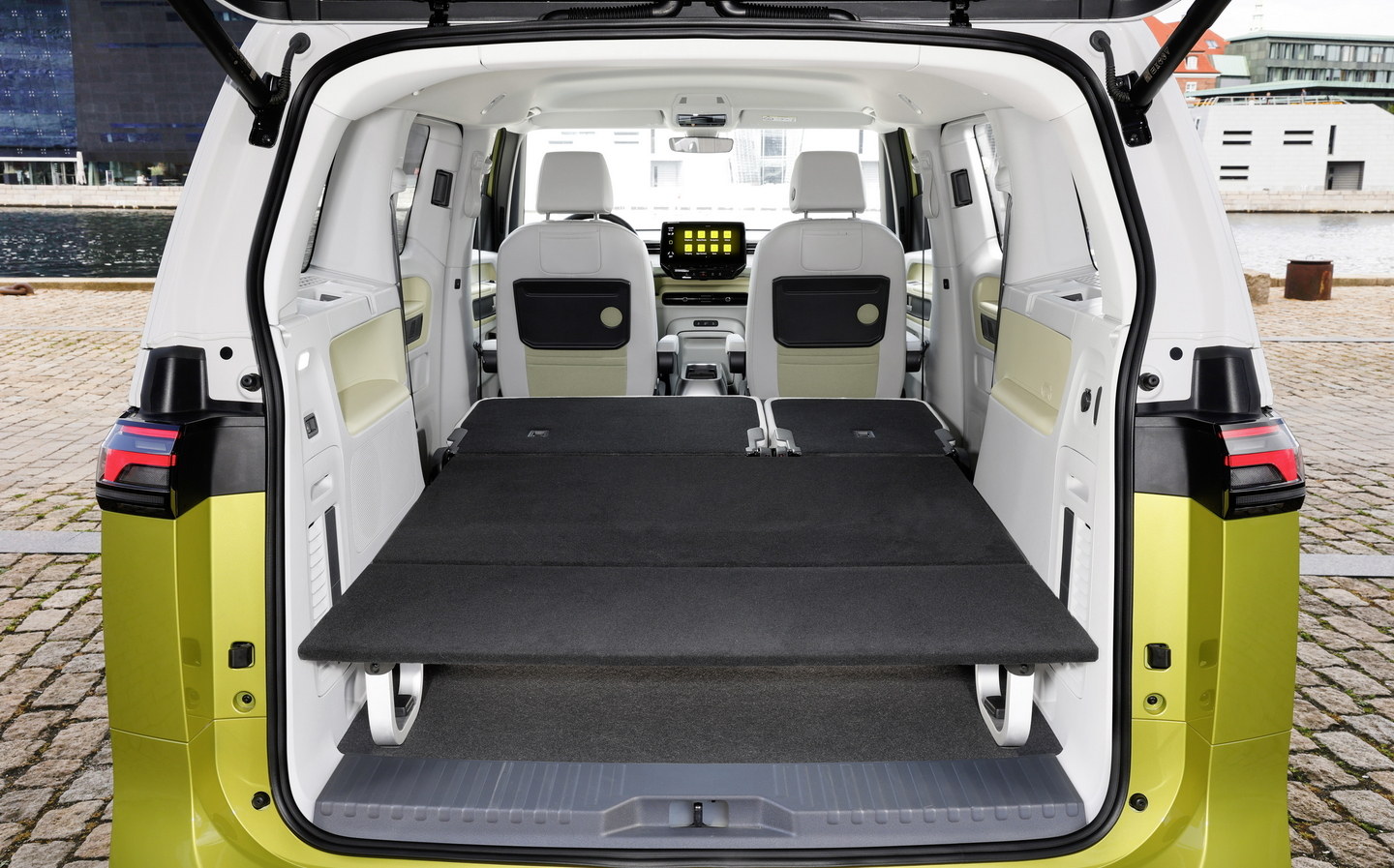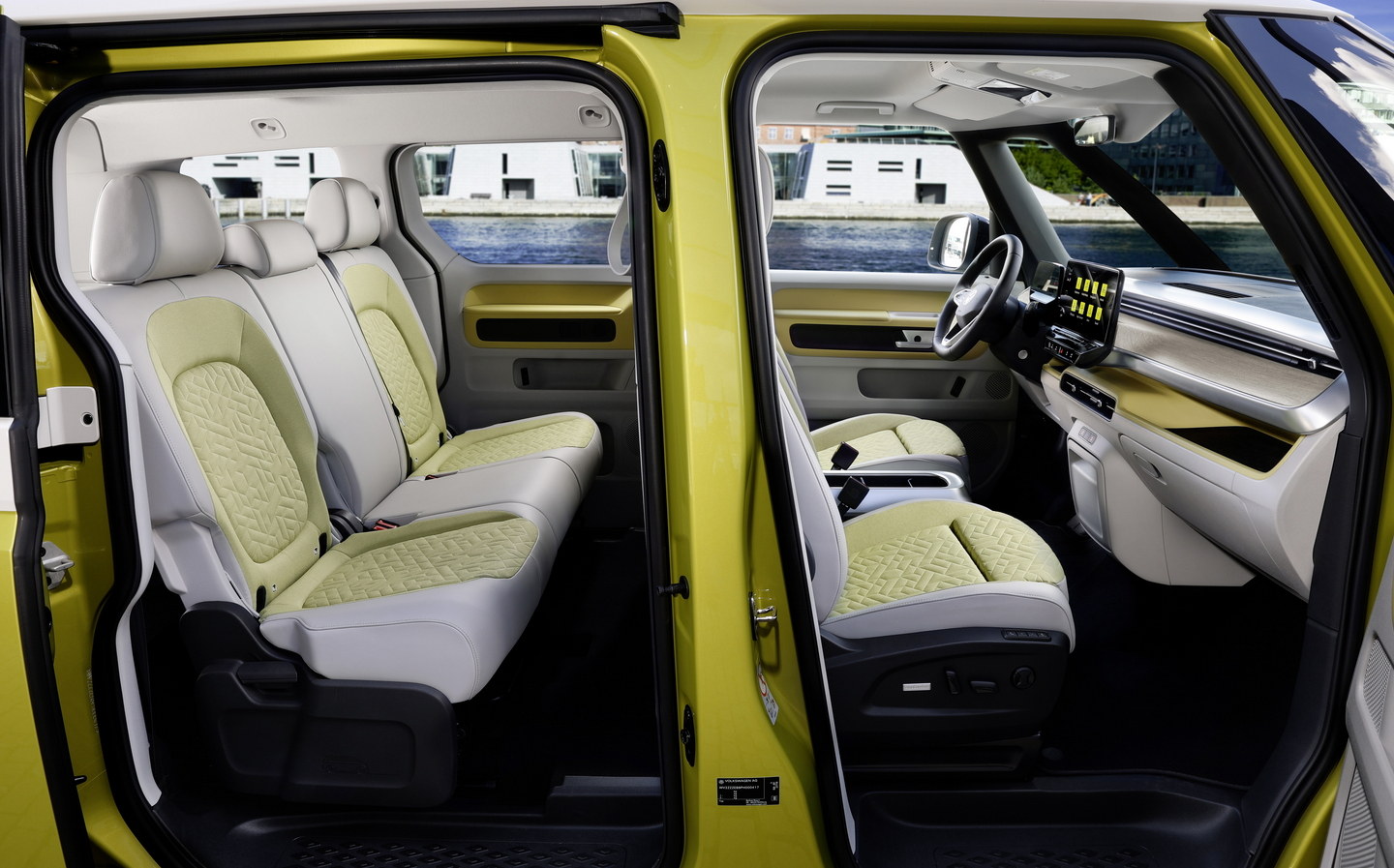Volkswagen ID. Buzz 2022 review: Form and function equal fun with VW's electric MPV
Guaranteed to create a buzz
Following almost two decades of “will they or won’t they” there is finally a true spiritual successor to the Volkswagen Microbus. While the ID.3 ushered in the new electric era for VW, the ID. Buzz is just as significant for the company — arguably more so — on account of its visual impact and desirability.
Unapologetically cute in its exterior design, the ID. Buzz uses the same electrical architecture and underpinnings as the ID.4 and ID.5, with up to 258 miles of driving range and space for all the family.
It will initially come in three specifications with five seats, though Volkswagen is working on a longer seven-seat version and, yes, a campervan.
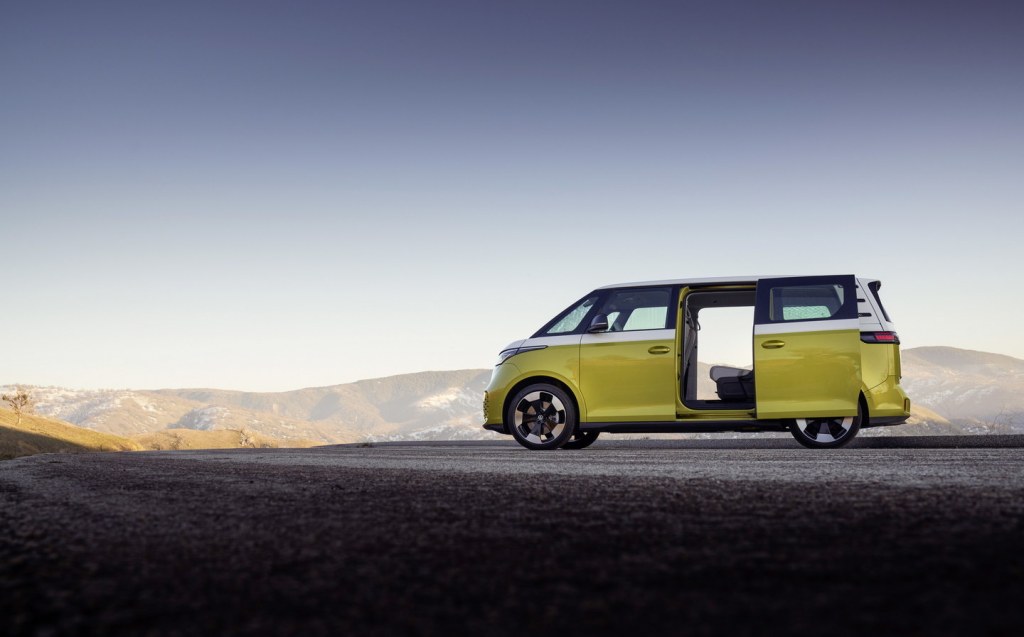
Exterior design and rivals
The task of creating the ID. Buzz was no easy one. For starters, the design team were dealing with reimagining a vehicle that is quintessentially “VW”; as emblematic of the company’s heritage as the Beetle or Golf. Add to that the need to also make the new model work as a light commercial vehicle as well as a people carrier.
The result is a vehicle that hits all the marks, from a design that is retro yet echoes the modern styling elements of other ID. models. LED headlights include a light bar that spans the upright bonnet, which holds one of the largest VW logos in recent memory. Add to that the two-tone paintwork — a £1,800 option — and you have a vehicle that is as Instagramable as any exotic supercar.
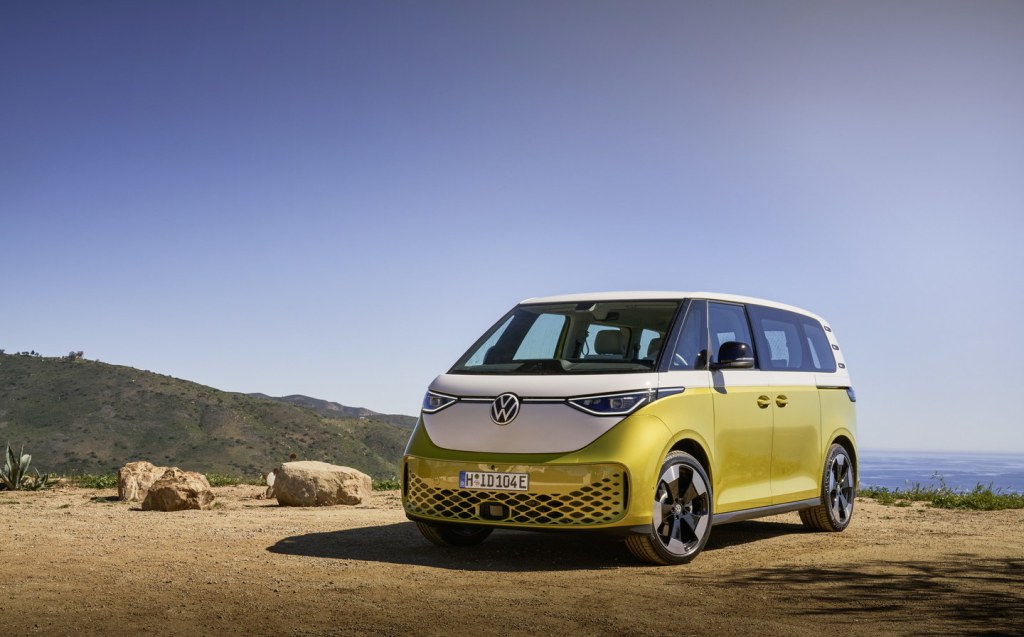
The standard 19in wheels look good, but even more stylish 20in and 21in versions are fitted to the Style and 1st Edition models, respectively.
Practically speaking, sliding rear doors are hugely useful, while the tailgate (powered on ID. Buzz Style models) opens to reveal a low load height and acres of space. The only limiting factor is that you will need to leave some room behind for the big hatch to swing up and open.
Putting the charge port on the rear quarter is a sensible move, too, as it should work in a multitude of parking situations.
Compared to other electric people movers such as the Citroen E-Spacetourer and even the posh Mercedes-Benz EQV, the Volkswagen is sure to be the crowd favourite on looks alone.
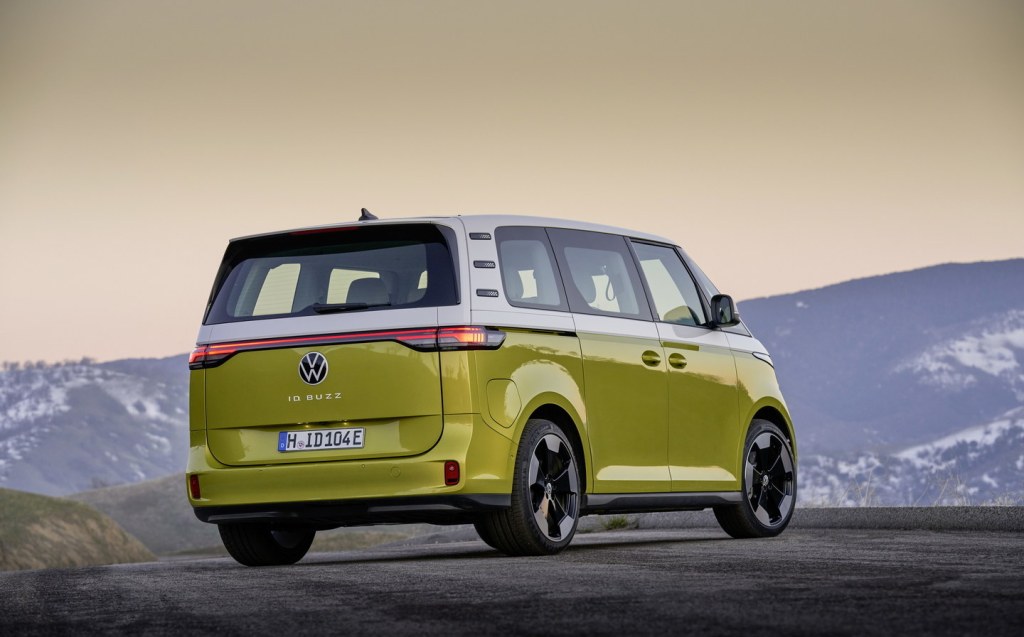
Interior and practicality
Volkswagen caught some flak for the interior quality of the ID.3, something that was improved for the larger ID.4 and there’s a palpable further improvement here. There are still some annoying features such as the touch-sensitive steering wheel controls, but overall the simplicity of the interior layout is mostly refreshing, as are the colour choices available.

A raised seating position will be a plus to many who typically seek out such a feature in SUVs, but what is perhaps most surprising initially is discovering how far back you sit from the windscreen. The view is expansive, thanks partly to the double A-pillar design that reduces potential blind spots.
As the electric motor is located at the rear of the car, there’s lots of space around the front seats, and Volkswagen includes a practical centre console unit that slots between them. A wireless charging pad is tucked into the dashboard next to the steering wheel, although it’s not the largest slot for phones especially if it has a bulky protective case.
A small digital instrument display is fixed onto the steering column, so it moves with the wheel as its position is adjusted. As with other ID. models, the drive selector is the stalk on the right and operates with a simple twist forward or back for your desired direction of travel.

Rear seats are important in a car such as this and there’s a decent amount of room even for adults. The middle seat is notably wider than found in a typical crossover or SUV, but it doesn’t get Isofix mountings. Reclining seatbacks are welcome, as is the option to slide the rear seats forward or back by as much as 150mm depending on whether you need more legroom or boot space.
Not that the latter should ever be an issue, as there’s a whopping 1,121-litre volume, which can increase to 2,205 litres when you fold down the rear seats. A cleverly designed raised floor, which is removable, creates one flat load level when the rear seats are down while also adding an underfloor compartment for additional charging cables or valuables.
A neat pop-out towing hook enables towing, though up to 1,000kg and towing will negatively affect how far you can travel per charge. It’d be most useful for the likes of light trailers or cycle carriers, therefore.

Technology, safety and charging speeds
Despite its retro looks there is plenty of modern technology inside the ID. Buzz, and it generally works well. The infotainment system software — a chagrin of early Volkswagen ID. customers — seems to be improving with each iteration, though we found it to be slow on initial start up as ever.
Alongside the steering wheel controls, a few physical buttons next to the central screen for things such as air conditioning temperature wouldn’t go astray, rather than having to slide your finger along a touch bar.
It does have some clever functions, including a Park Assist plus feature that can remember up to five complex parking scenarios and locations. Once it’s shown how to do it initially, it can replicate it over and over again. Another assist function can take care of the driving in stop-start, slow-moving traffic to take some of the strain out of the rush hour.

Volkswagen has yet to put the ID. Buzz through the Euro NCAP crash test, but with the ID.4 and ID.5 scoring top marks it ought to do well given the amount of shared architecture and active safety equipment.
As battery technology continues to improve, so too does the software that manages it and the ID. Buzz is capable of rapid charging at up to 170kW. That translates to being able to go from 5 to 80% charge in as little as half an hour at the right charger. The regular 11kW onboard AC charger will refill the battery in its entirety in as little as 7 hours 30 minutes.
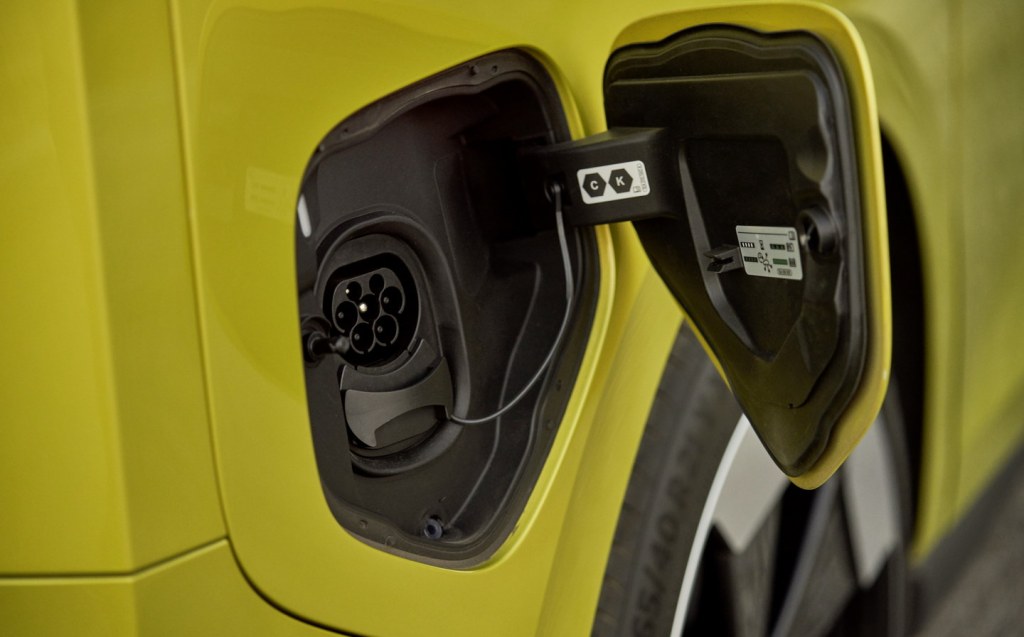
Performance, range and acceleration
At launch only one electric motor will be available for the ID. Buzz; it’s a 201bhp unit that powers the rear wheels.
It’s identical to what appears in Volkswagen’s other EVs and provides ample performance in spite of the car’s size. From a standing start, it will reach 62mph in 10.2 seconds, though it feels a bit quicker in reality.
The top speed is capped at 90mph, though you’re unlikely to want to anywhere near that speed, even if legal, as the energy consumption really ramps up the faster you go. Importantly it will cruise on motorways without issue.
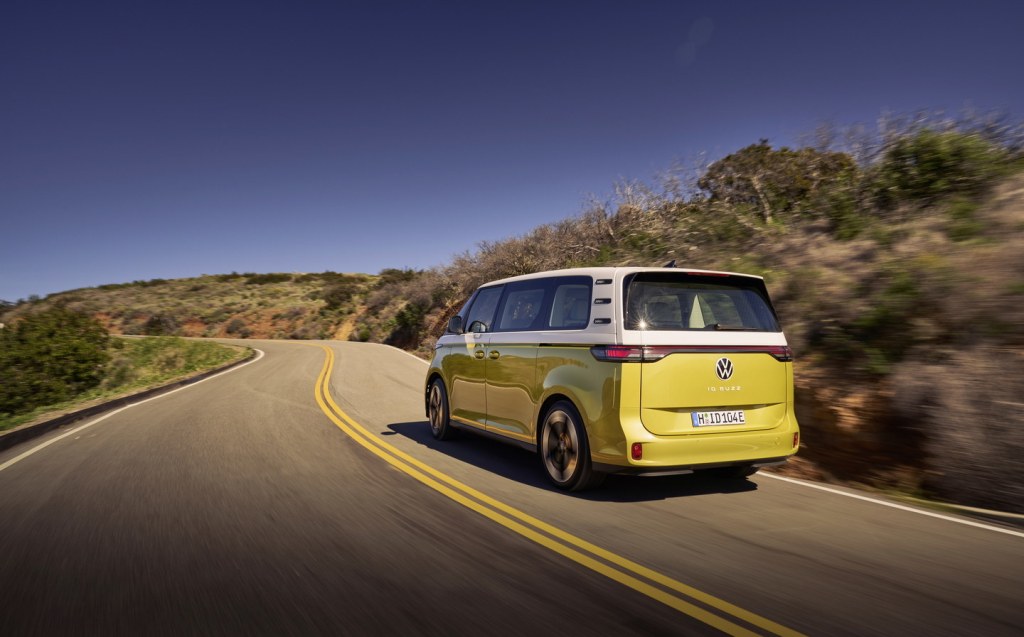
Volkswagen plans to introduce a dual-motor version that will gain both outright performance and a higher towing capacity. That extra power could come in handy for when the seven-seat variant arrives, too.
There’s only one battery size at the moment, which as mentioned offers an official range of up to 258 miles on a mix of roads.
Ride and handling
You’re unlikely to be buying a Volkswagen ID. Buzz for its outright performance and handling, but by electric people carrier standards it’s at the top of the table. Even with its relatively tall height the centre of gravity feels low as you steer it through bends, and it is very planted.
And the electric motor, pushing the Buzz along with by its rear wheels, has ample get-up-and-go as well as the fun factor to go with the smile-inducing looks.
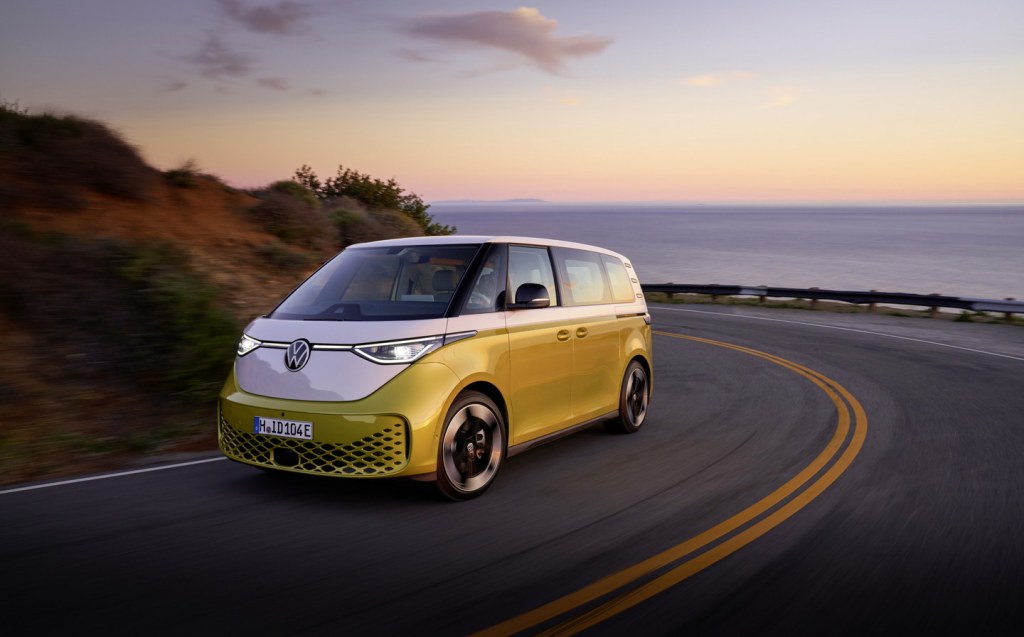
Just as impressive is the lack of any squeaks or rattles. Often such van-based people movers feel light and tinny, never what you’d call a premium experience, yet the Volkswagen seems every bit as well made as its best cars.
Navigating smaller city streets isn’t an issue thanks to the great visibility and relatively small turning circle. Right-hand-drive models don’t fare quite as well as their European counterparts due to the use of a different steering rack, however, which adds about one metre to the turning circle.
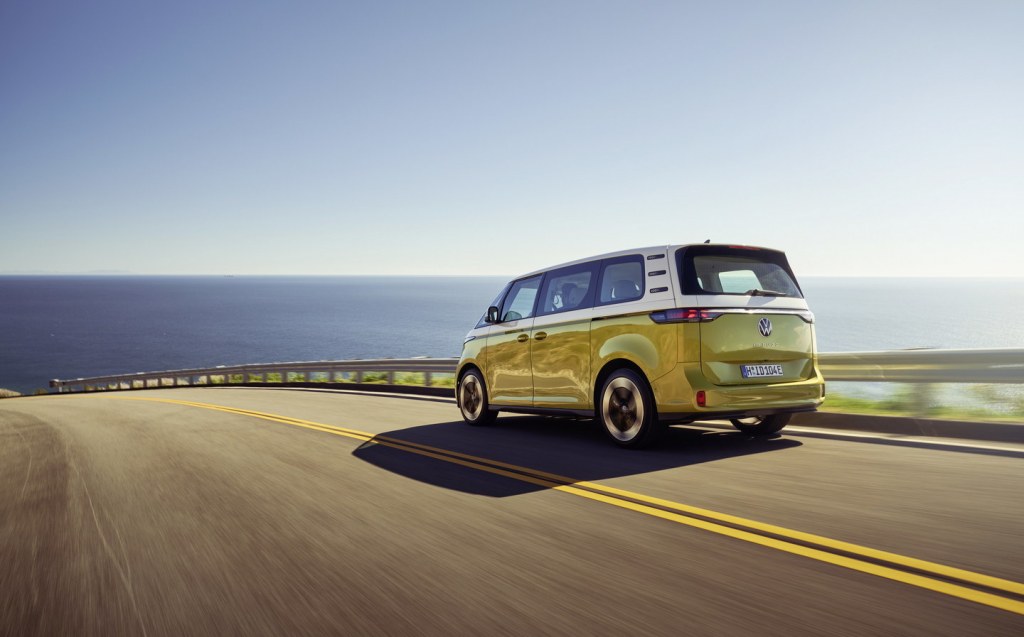
Stick to urban areas, where speeds are lower, and you’ll see the 258-mile driving range extend further. During our time with the ID. Buzz it matched the official energy consumption figure across a full day of driving in numerous different situations.
Pricing and on-sale date
The Volkswagen ID. Buzz has a starting price of £57,115 for the Life specification. Switching up to the mid-level ID. Buzz Style means an on-the-road price of £61,915 while the top-spec 1st Edition costs £62,995. With supply limited and demand seemingly high, there’s likely to be substantial waiting lists.
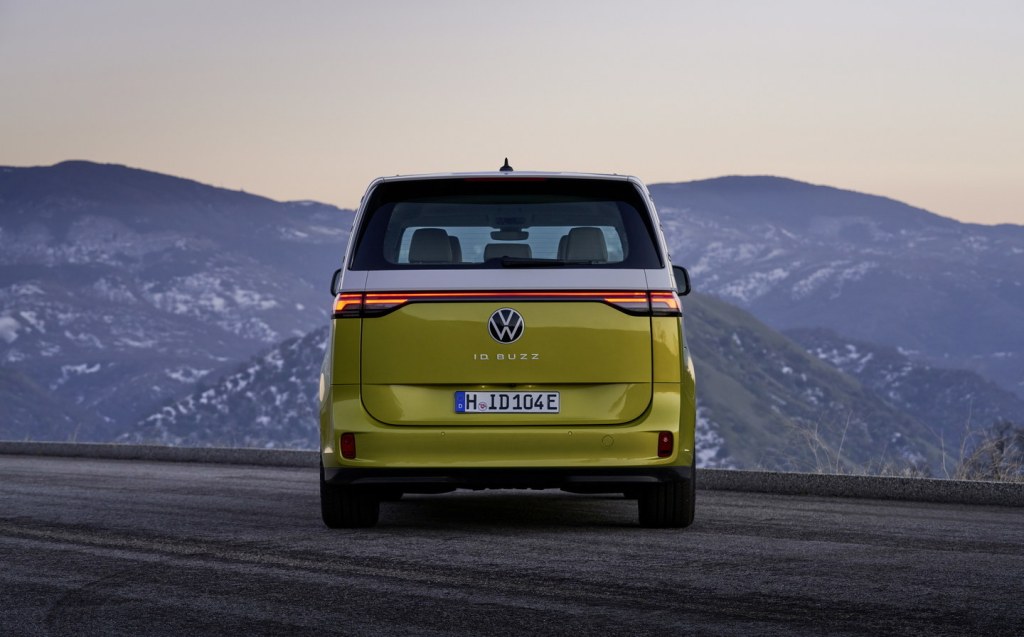
Verdict: Volkswagen ID. Buzz review
It would almost be forgivable if the ID. Buzz were all show and not much else, but the engineers have created a van-style people carrier that’s most un-van-like to drive. In fact, we’d go as far as to call it refined.
The looks, spaciousness and electric-only powertrain make this one of the few large cars that appears to be wholly socially acceptable — a perfect alternative to SUVs, which add height and weight without any extra carrying capacity.
Expect ID. Buzz to be lining beach-side car parks up and down the land in no time at all. VW has a winner here.
Related articles
- After reading our review of the Volkswagen ID. Buzz, you might want to check out our review of the VW ID.5
- Keen to go electric? Here are the top 10 longest-range electric cars
- And don’t miss our review of the divisive BMW iX
Latest articles
- testing schedule 2
- test schedule
- F1 driver Lando Norris commissions bespoke open-top Land Rover Defender
- Citroën C3 and e-C3 2024 review: Petrol or electric, bow down before the new king of value cars
- Best-selling cars 2024: The UK’s most popular models
- Fourth-generation BMW 1 Series shows its new face with all-petrol line-up for the UK
- Cupra Tavascan 2024 review: Funky electric SUV continues Spanish brand’s EV roll
- Divine intervention? Trump-supporters’ motorhome destroyed after rolling into telegraph pole
- Extended test: 2023 Vauxhall Astra Sports Tourer GS PHEV




